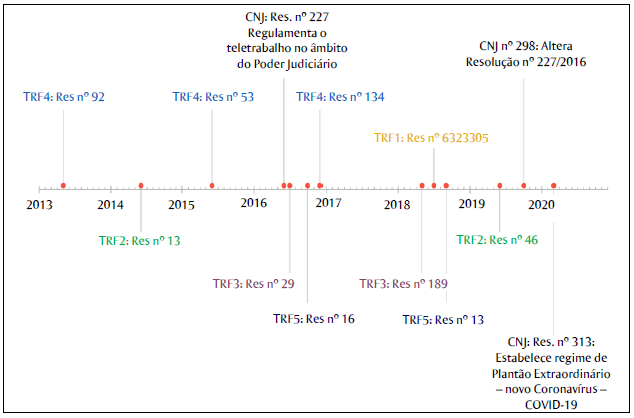Abstract
Introduction:
working remotely has become a necessary resource in face of the public health emergency crisis caused by the new Coronavirus (Sars-CoV-2).
Objective:
to analyze the trajectory of remote working regulation in the Brazilian Federal Judiciary and how the COVID-19 pandemic outbreak affected that process.
Methods:
descriptive study based on the federal judiciary teleworking regulations.
Results:
the federal judicial system started to adopt teleworking in 2013, when the Forth Region Court published the first resolution on this topic. In 2016, the National Council of Justice regulated it nationally and each Court issued additional regulations. Due to the pandemic and aiming at keeping its activities during lockdown and social distancing measures, the Federal Judiciary quickly established full and compulsory remote working to all magistrates, civil workers and trainees. However, each court adopted different goals and took distinct actions. Individual and family aspects, as well as work environment, organization and nature were considered for the teleworking implementation.
Conclusion:
the results suggest that the challenges of remote working during the pandemic crisis should contribute to the analysis and improvement of current regulations, goals and public policies, whether in the Judiciary or in all other sectors, as well as to understand and prevent their impacts on workers’ health.
Keywords:
teleworking; federal court; COVID-19; public policies; occupational health

 Thumbnail
Thumbnail
 Fonte: elaborada pelas autoras.
Fonte: elaborada pelas autoras.